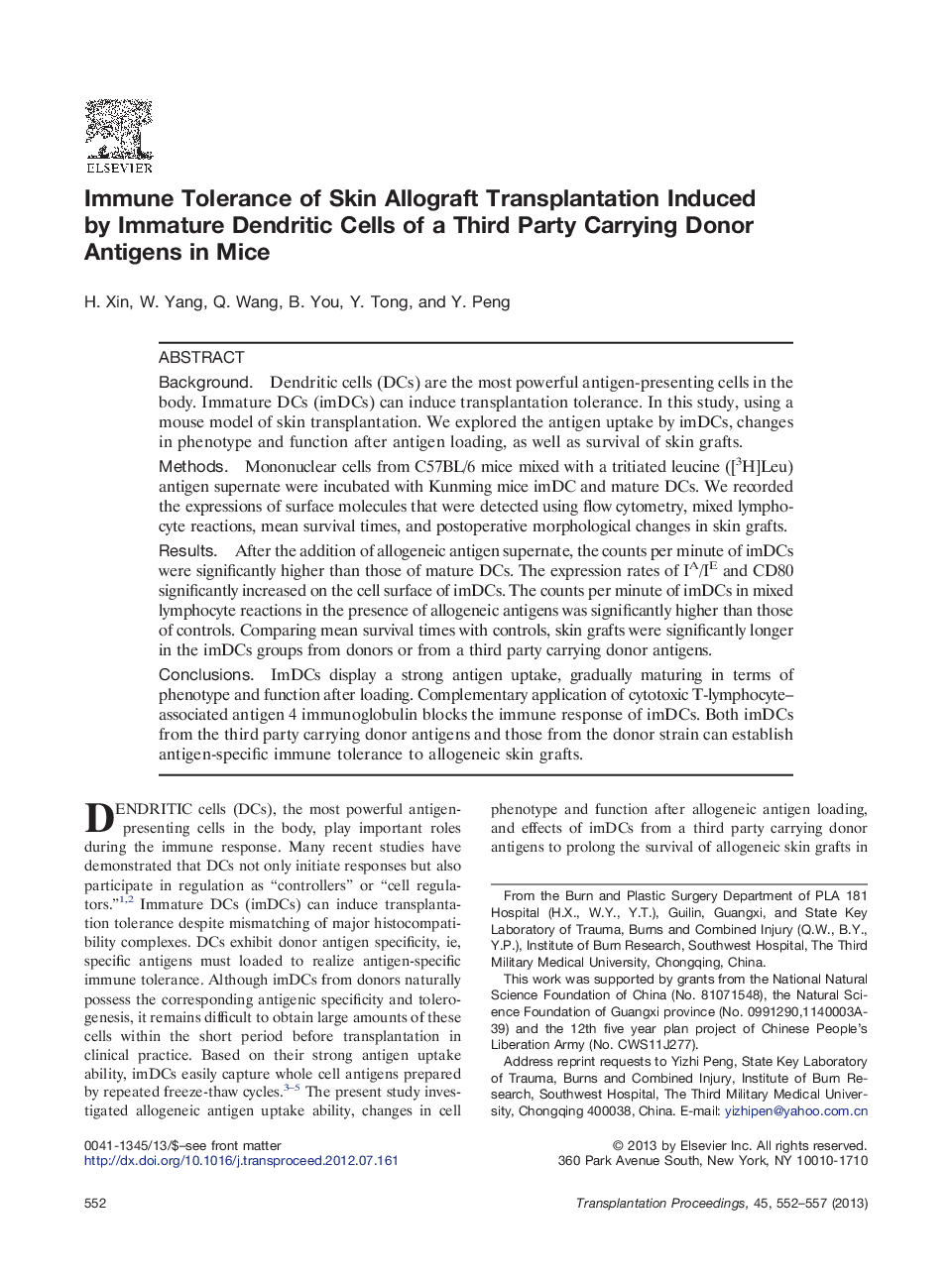| Article ID | Journal | Published Year | Pages | File Type |
|---|---|---|---|---|
| 4256139 | Transplantation Proceedings | 2013 | 6 Pages |
BackgroundDendritic cells (DCs) are the most powerful antigen-presenting cells in the body. Immature DCs (imDCs) can induce transplantation tolerance. In this study, using a mouse model of skin transplantation. We explored the antigen uptake by imDCs, changes in phenotype and function after antigen loading, as well as survival of skin grafts.MethodsMononuclear cells from C57BL/6 mice mixed with a tritiated leucine ([3H]Leu) antigen supernate were incubated with Kunming mice imDC and mature DCs. We recorded the expressions of surface molecules that were detected using flow cytometry, mixed lymphocyte reactions, mean survival times, and postoperative morphological changes in skin grafts.ResultsAfter the addition of allogeneic antigen supernate, the counts per minute of imDCs were significantly higher than those of mature DCs. The expression rates of IA/IE and CD80 significantly increased on the cell surface of imDCs. The counts per minute of imDCs in mixed lymphocyte reactions in the presence of allogeneic antigens was significantly higher than those of controls. Comparing mean survival times with controls, skin grafts were significantly longer in the imDCs groups from donors or from a third party carrying donor antigens.ConclusionsImDCs display a strong antigen uptake, gradually maturing in terms of phenotype and function after loading. Complementary application of cytotoxic T-lymphocyte–associated antigen 4 immunoglobulin blocks the immune response of imDCs. Both imDCs from the third party carrying donor antigens and those from the donor strain can establish antigen-specific immune tolerance to allogeneic skin grafts.
